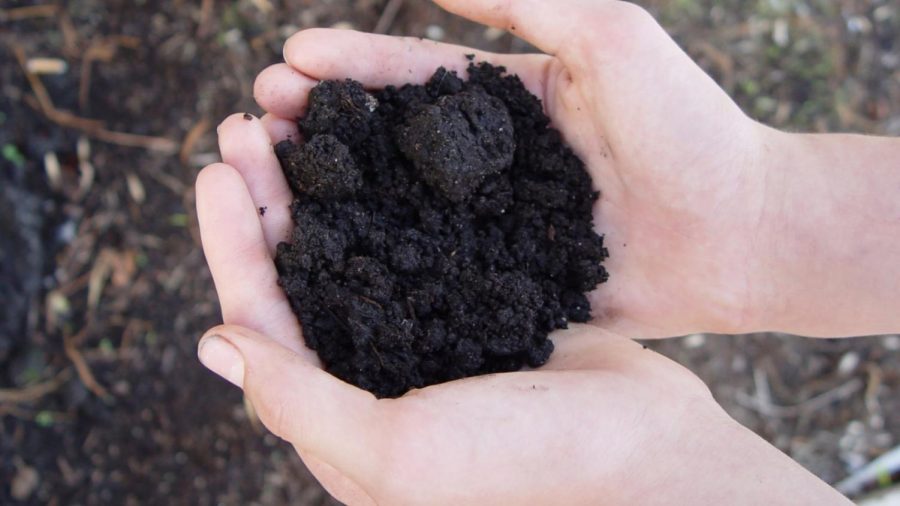Terramation is an Environmentally & Ethically Responsible Choice
California Governor Gavin Newsom signed a bill this month requiring state regulators to allow terramation, an alternative post-death process, by 2027. Terramation is a body disposal method where the human body is composted into earth. Although it may sound like something out of science fiction, terramation is a natural, eco-friendly process that is also meaningful and financially sound.
In terms of cost, terramation can be less expensive than casket burials (costing around $12,000) or cremations with funerals (costing around $6,000), with a price range from about $5,000-$7,000. For casket burial costs, space is also expensive, and limited space in cemeteries worldwide is becoming a major issue. Terramation can reduce this risk of urban congestion and conserve more land by reducing the need for spacious cemeteries.
Terramation has other great benefits for the environment. Other body disposal methods such as cremation can put strain on the environment by using up to 30 gallons of fuel and releasing hundreds of pounds of carbon dioxide. There are risks that come with burials as well: when burying a body, harmful embalming fluids like carcinogenic formaldehyde are used for preservation of the body during funeral ceremonies.
Terramation bypasses the use of harmful chemicals in burial and the exhaustive energy use in cremation. According to Micah Truman, founder of the terramation company “Return Home,” terramation only uses “1/10 of the energy of cremation,” and the body is composted over a period of 60 days. Bodies are placed in a vessel with other organic products and through the addition of oxygen, microbes in the body convert it into compost over time.The bodies are composted into soil in the first 30 days. For the next 30 days, the soil is left to breathe and rest. The compost which is given back to families is “sweet smelling” and otherwise similar to most other composts. The compost produced from terramation is “enough to fill up the bed of a pickup truck” and can return nutrients back to the soil, promoting new life.
Terramation can also have great meaning for individuals. Individuals who prioritize environmentalism and want to reduce the environmental impact of traditional disposal methods may find terramation a great way to do this. Other groups of people, like farmers who want to return to their land or grow something from their compost, also look to terramation. Terramation can even be an alternative method for individuals who don’t want a traditional burial or funeral.
Family members can be involved in the terramation process in various ways. Family members can sit with the terramation vessel over the course of its transformation. Meaningful materials for the family or individual can be added to the vessel as long as they are organic, such as wedding cakes, love letters and blankets. The compost produced by terramation can easily be divided among families. Compost can be used to honor the individuals who have passed by planting trees in their honor or adding the compost into park spaces.
Considering the growing negative impacts of climate change, terramation offers a practical answer which can work to reduce the environmental impacts of more traditional burial methods. Terramation is a reaffirming way of allowing people to give back to the environment in their death. Terramation also has the capability to carry similar symbolic meaning for families and individuals as other processes such as funerals and cremations.
While not everyone may be keen to plan on terramation for the future, and I believe it will take a long time for it to be mainstream, the growing industry and legalization of the process can introduce the idea to many people who may give it a second thought or even be eager to do it. In a time where people are growing more conscientious about their effects on the environment, terramation will probably be favored for its sustainability and may even become necessary for our world, with its growing population. There is always an increasing demand for land not only for burials, but for the living.
While terramation might sound strange at first, it is a careful and symbolic decision which is just as meaningful as other body disposal processes and should be viewed as just as viable an option as burials and cremation. Death is an inevitable reality for all of us, but terramation offers us a way to give back to our world and sustain new life through death.
Saisha Islam, FCRH ’25, is a biology major from Bronx, NY.

Saisha Islam is a senior from the Bronx, N.Y., who is majoring in biological sciences and minoring in English. She first joined The Fordham Ram as a contributing...











































































































































































































George E. Schneider • Mar 22, 2024 at 8:47 pm
I like this idea, how many visit there beloved ones buried underground or elevated mausoleum . And who says there burial place is permanent in the future. It could be a new housing development someday it could be a hundred years later when they dig them up a move the Cascus to who knows where.
Saiful • Oct 26, 2022 at 12:44 pm
Very informative and educational. Awesome writing